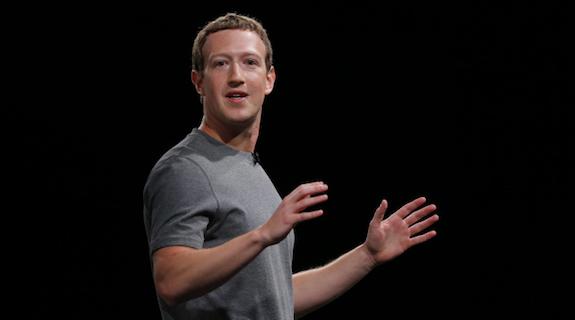Facebook is partnering with professional fact-checkers ABC News, Snopes.com, FactCheck.org and PolitiFact to help it keep fake news in check, the social-media giant said Thursday.
Facebook won’t purge the site of these so-called stories, however, citing what are essentially First Amendment concerns.
“We believe in giving people a voice and that we cannot become arbiters of truth ourselves, so we’re approaching this problem carefully,” write Adam Mosseri, VP, News Feed, in a blog post on the site. “We’ve focused our efforts on the worst of the worst, on the clear hoaxes spread by spammers for their own gain, and on engaging both our community and third party organizations.”
To help curtail the problem — about which many people pointed fingers at Facebook and other platforms for influencing the outcome of the election — Facebook is instituting a four-part plan.
First, it’s making it easier for Facebook users to report stories they think are fake by clicking an option provided when they scroll over the upper-right corner of the post.
Part two is working with the above-mentioned partners to fact-check these posts. Stories identified as fake will be flagged as disputed and they will appear lower in users’ news feeds.
“It will still be possible to share these stories, but you will see a warning that the story has been disputed as you share,” Mosseri wrote. “Once a story is flagged, it can’t be made into an ad and promoted, either.”
ABC plans to devote about six employees to fact-checking duties, ABC News President James Goldston told Variety on Thursday.
“This is a significant initiative to deal with what has been an incredibly difficult and thorny issue,” Goldston told the magazine. “We have seen over the course of this election cycle the truly toxic effects of fake news … and we do obviously believe in making sure the American people have real information on which to make their decisions.”
Some stories’ inherent “fakeness” becomes apparent when people read them, making them less likely to share these pieces. Mosseri says Facebook plans to incorporate that information into stories’ rankings.
“We’ve found that if reading an article makes people significantly less likely to share it, that may be a sign that a story has misled people in some way. We’re going to test incorporating this signal into ranking, specifically for articles that are outliers, where people who read the article are significantly less likely to share it,” writes Mosseri.
Finally, and perhaps most importantly, Facebook is going to make it less profitable for purveyors of fake news to create and post these pieces.
Writes Mosseri: “Spammers make money by masquerading as well-known news organizations, and posting hoaxes that get people to visit to their sites, which are often mostly ads. So we’re doing several things to reduce the financial incentives. On the buying side we’ve eliminated the ability to spoof domains, which will reduce the prevalence of sites that pretend to be real publications. On the publisher side, we are analyzing publisher sites to detect where policy enforcement actions might be necessary.”
READ MORE: Variety
Tags:













































__twocolumncontent.jpg)











